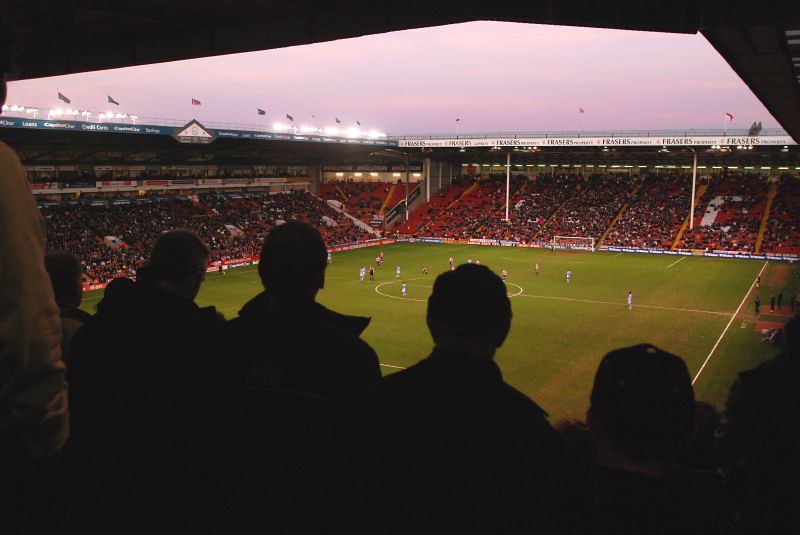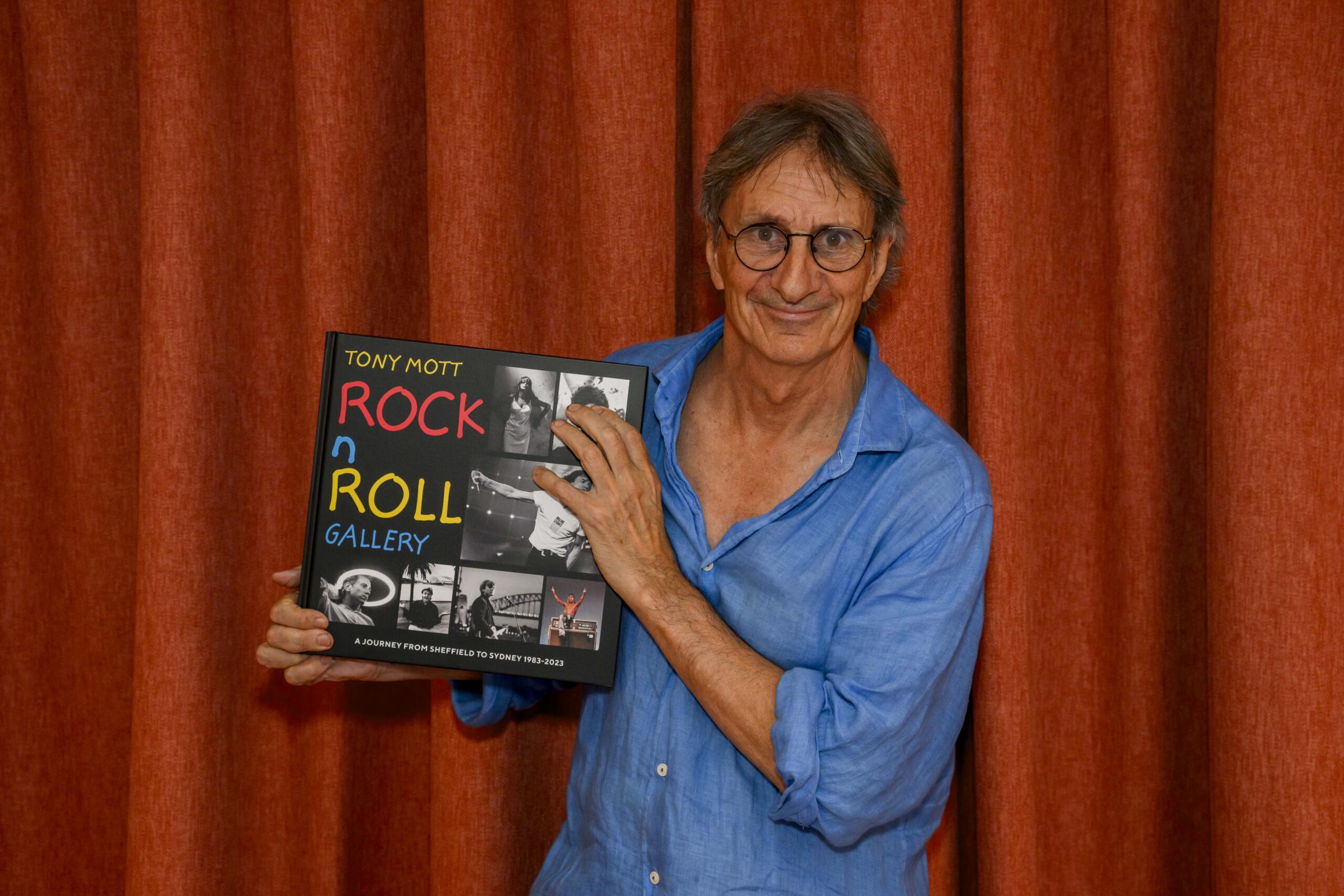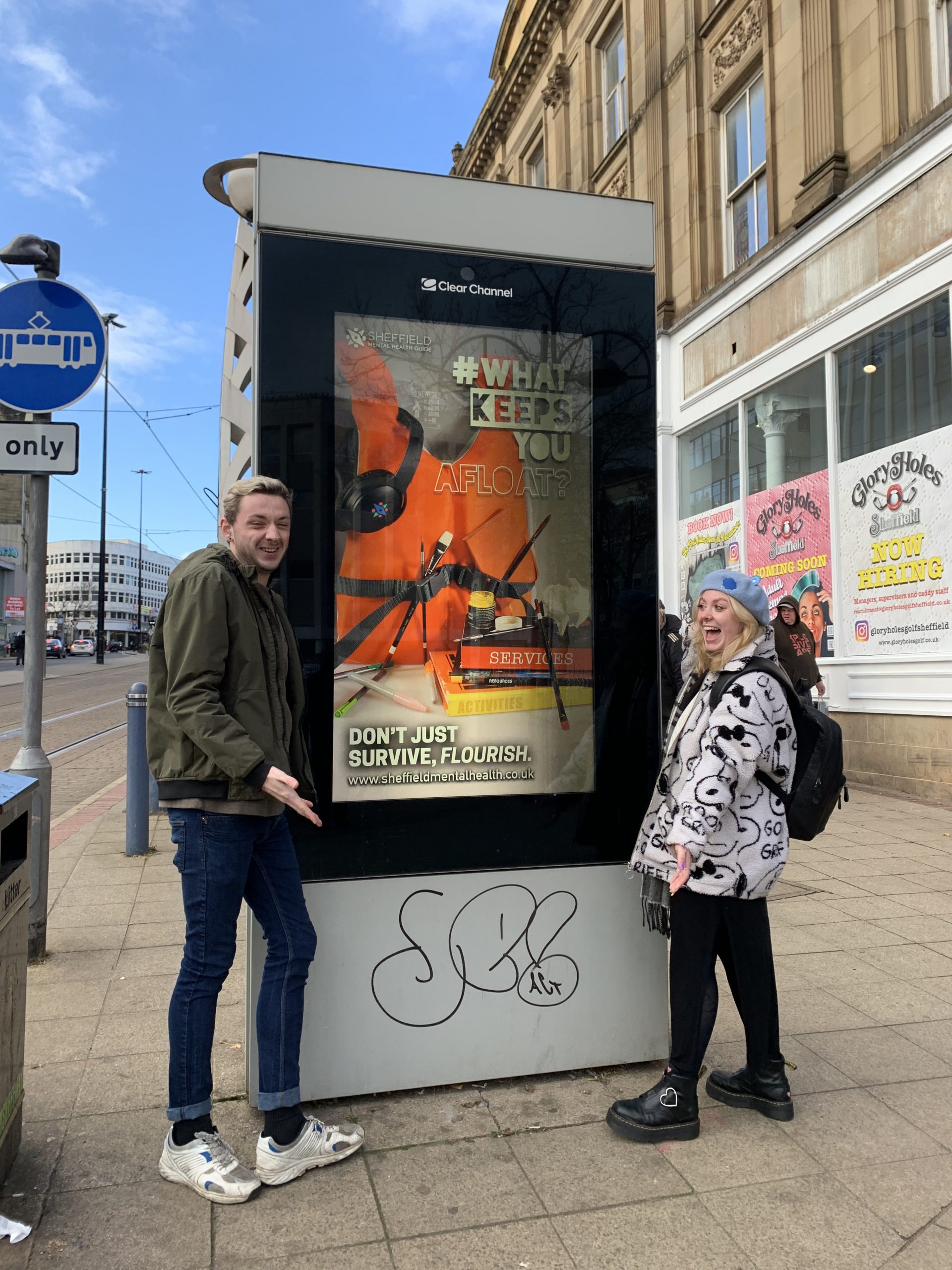Credit- Andrew (Flickr)
When Chris Wilder returned to take the reins at his club, apathy reigned supreme.
The side’s eleventh placed finish in League 1 was their worst since the 80s, and as Nigel Adkins’ charges undertook their ‘lap of appreciation’, the stands were almost completely empty.
Most simply didn’t care, and those who chose to stay were apoplectic with rage- berating a side unfit to wear the shirt, a team entirely disconnected from its supporters.
 However, the arrival of Wilder was to mark a near-unthinkable revival. A bloated squad was cut down, and the captain’s armband given to Billy Sharp, another boyhood blade. The likes of John Fleck, Mark Duffy and Jack O’Connell came through the door- players who were destined to belie meagre, even non-existent transfer fees and cement their status as heroes.
However, the arrival of Wilder was to mark a near-unthinkable revival. A bloated squad was cut down, and the captain’s armband given to Billy Sharp, another boyhood blade. The likes of John Fleck, Mark Duffy and Jack O’Connell came through the door- players who were destined to belie meagre, even non-existent transfer fees and cement their status as heroes.
While the side stuttered as the season started, Wilder remained steadfast. A 2-1 defeat at Millwall might have drawn his ire, but as the team coach left The Den, Wilder’s man-management skills came to the fore.
He stopped at an off-licence, returning with as much beer as he could carry and a wallet that was £100 lighter. Fitness and conditioning went out of the window, but Wilder sent a much more important message- that he believed in every single member of his squad.
That belief almost immediately transferred to the pitch. This was a team that refused to believe it was ever beaten, with fans soon becoming hooked on the euphoria of last minute goals against Fleetwood, Bury and Peterborough.
Wilder moulded a team that worked hard yet possessed real quality, with his trademark overlapping centre-halves taking the league by storm. Almost all challengers were blown away, sealing revenge against the sides that so frequently frustrated the Blades in seasons gone by.
Previous United sides would have crumbled under the pressure of a title race- Wilder’s relished it. Their momentum was unstoppable, and even when they went 1-0 down at Northampton in the game that could seal promotion, there was to be only one winner.
John Fleck and Leon Clarke turned the game on its head, sparking absolute delirium. The fans stormed the pitch with corner flags and flares aloft, carrying Billy Sharp on their shoulders, as Wilder led the chants from the stands. Promotion to the Championship was sealed, United’s footballing purgatory was over, and that bond between fans and their players was stronger than ever.

Credit- Wikimedia Commons
The next task on Wilder’s list was to reassert United’s dominance over their city rivals. Indeed, there was only one fixture fans were looking for on their return to the second tier. The blue and white contingent were Premier League dreamers, and to them, United were a pub team from a pub league.
On a Sunday night in late September, Dog and Duck FC travelled to Wednesday’s backyard and made the city theirs. United raced into a 2-0 lead, stunning Hillsborough into silence. However, Wednesday staged a comeback, and when they brought the game back to 2-2 in the second half, it seemed the momentum had swung firmly in their favour.
If the Owls thought Wilder would let his side fall apart in this fixture, they were sorely mistaken. Barely a minute after the equaliser, with a chorus of “if you don’t bounce” echoing around the ground, Mark Duffy produced a moment of unbridled magic. Latching onto a ball from Clarke, he twisted and turned beyond a hapless Van Aken before rifling past Westwood from a tight angle.
The upper tier of the Leppings Lane End erupted. The six years of Wednesday’s ascendancy were wiped out in an instant, and United went on to seal a 4-2 victory. Wilder’s side had produced one of the great derby performances, and laid down a marker to the rest of the Championship- underestimate us at your peril.
In November, just as United went top of the league with a win over Burton Albion, their season was derailed. Paul Coutts broke his leg after a challenge by Marvin Sordell, ruling the orchestrator of Wilder’s midfield trio out for the rest of the campaign.
United never really recovered. They began to struggle to gain a foothold in games, missing the calming presence that Coutts provided. They slipped down the table as the season progressed, eventually finishing tenth in the table.
While this was no mean feat for a side with one of the smallest budgets in the league, Wilder refused to rest on his laurels. His ambition was relentless, and he set about identifying the targets that would help him fulfil the promise of promotion.
That summer, John Egan, Oli Norwood and David McGoldrick arrived to bolster the ranks. Wilder’s signings strengthened the side without disrupting the dressing room, breathing new life into the team. Suddenly, United were real contenders for promotion.
An intense battle with Leeds ensued, with second place swapping hands throughout the campaign. United’s season was frenetic: from electric atmospheres during wins over Brentford and Derby, Basham’s now-iconic arrival at Elland Road, to last-minute collapses against Aston Villa and Millwall.
As the drama heightened with every game, Wilder remained cool. He ensured that egos never inflated after victory, and that heads did not drop after defeat.

Credit- Jamie Weaver
Even when Leeds seemed to have clinched promotion, Wilder maintained his belief in the quality and character of his side. As Bielsa’s side stumbled with five games to go, United became ruthless- they responded to each Leeds loss with a win of their own, clawing back the deficit to give themselves one last chance.
Wilder inspired his team to monumental victories over Hull and Ipswich, capitalising on the collapse of their Yorkshire rivals to seal promotion to the Premier League.
After 12 years, United would once again take their place at English football’s top table. Thanks to Wilder, the United faithful could banish those painful memories of David Unsworth and Carlos Tevez, Wade Elliott at Wembley and Steve Simonsen’s skied penalty.
The celebrations were something to behold, as players and fans came together for the party of all parties.
Bramall Lane and London Road were heaving, players crowdsurfed off the team coach, and they drank as though each and every one of them was born and bred in S2.
That first season in the Premier League saw United eclipse all expectations. Relegation was an afterthought, and having gone toe-to-toe with the top six before Covid struck, United were on the cusp of European football.
Just five years before, this was unthinkable. But Wilder, staying true to the players and system that had revolutionised his club, allowed fans to dream briefly of facing Bayern and Barcelona instead of Blackpool and Birmingham.
Although this season was nothing short of disastrous, Wilder’s legacy is certain. He instilled a belief that that club was destined for more than mere mid-table mediocrity, replacing the eternal pessimism bred into each generation of United fans.
The journey may be over, but this rebirth will not be forgotten. Wilder gave the fans memories to last a lifetime, and hopefully he will join them back on the stands at Bramall Lane before long.



